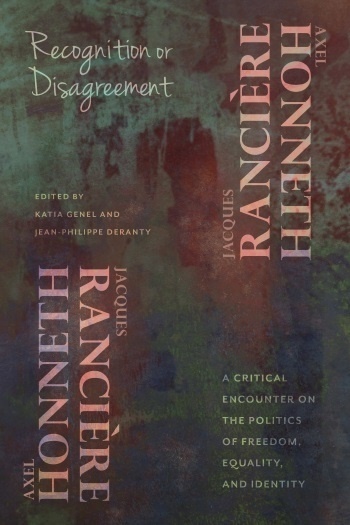Read more
In a rare dialogue, these two philosophers explore the affinities and tensions between their perspectives to provoke new ideas for social and political change. Honneth sees modern society as a field in which the logic of recognition provides individuals with increasing possibilities for freedom and is a constant catalyst for transformation. Rancière sees the social as a policing order, and the political as a force that must radically assert equality. Honneth claims Rancière's conception of the political lies outside of actual historical societies and involves a problematic desire for egalitarianism. Rancière argues Honneth's theory of recognition relies on an overly substantial conception of identity and subjectivity. While impassioned, their exchange seeks to advance critical theory's political project by reconciling the rift between German and French post-Marxist traditions and proposing new frameworks for justice.
List of contents
Part I. Setting the Stage1. Jacques Rancière and Axel Honneth: (Two?) Critical Approaches to the Political, by Katia Genel
2. Between Honneth and Rancière: Problems and Potentials of a Contemporary Critical Theory of Society, by Jean-Philippe Deranty
Part II. A Critical Encounter3. Critical Questions: On the Theory of Recognition, by Jacques Rancière
4. Remarks on the Philosophical Approach of Jacques Rancière, by Axel Honneth
5. A Critical Discussion
Part III. The Method of Critical Theory: Propositions6. The Method of Equality: Politics and Poetics, by Jacques Rancière
7. Of the Poverty of Our Liberty: The Greatness and Limits of Hegel's Doctrine of Ethical Life, by Axel Honneth
Notes
Bibliography
Index
About the author
Axel Honneth ist Professor für Sozialphilosophie an der Universität Frankfurt und der Columbia University sowie Direktor des Instituts für Sozialforschung in Frankfurt (IfS). 2015 wurde er mit dem Ernst-Bloch-Preis ausgezeichnet.
Jacques Rancière, geb. 1940, lehrte zwischen 1969 und 2000 Philosophie und Kunsttheorie an der Universität Paris VIII.
Summary
Axel Honneth is known for his critique of modern society centered on a concept of recognition. Jacques Ranciere has advanced a theory of modern politics based on disagreement. In a rare dialogue, these philosophers explore the affinities and tensions between their perspectives to provoke new ideas for social and political change.
Report
"This timely and important book brings together for the first time two of the leading practitioners of what can be termed 'critical theory,' the borderland where critical approaches to social and political theory, philosophy, and other fields as dispersed as history, aesthetics, and psychology meet. In so doing, Recognition or Disagreement will help to revive critical theory as a politically engaged and philosophically rigorous intellectual endeavor that extends across disciplines, approaches, and traditions, and to renew the long but disjointed dialogue between German and French approaches to the field. Despite its modest dimensions, it is a major contribution." - James Ingram, Associate Professor of Political Science, McMaster University

